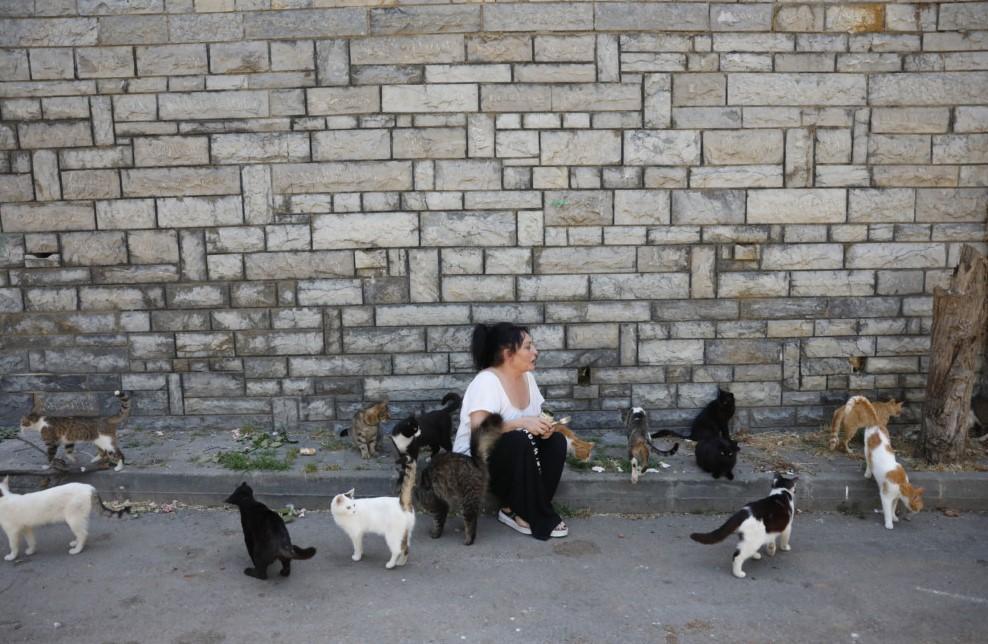
Some 700 cats have been killed by “feline infectious peritonitis (FIP),” known as the “cat coronavirus,” in the last four months in Büyükada, the biggest island of Istanbul’s Princes’ Islands, local officials have announced.
“There were around 210 cats in the region that I looked after. Now that number is only 50,” Neslihan Sipahioğlu, a volunteer for Büyükada Animal Rescue Society, told the Demirören News Agency.
FIP is a systemic disease caused by the mutant form of cat corona viruses (FCoV), the most common cause of death, especially of young cats and immune system depressed cats. Coronavirus (FCoV) in felines spreads in areas where cats live in crowded groups.
“Seven out of ten cats die of FIP [on the island]. The state or the Islands Municipality should do something,” Metin Türkmenoğlu, another volunteer said.
Stating that he has been recording all the cat deaths since 2013, Türkmenoğlu pointed out these spectacular statistics.
“Between 450-500 cats die in Büyükada annually. In the first five months of this year, the number of deaths surpassed 700. This is nearly three times more than annual numbers,” he expressed.
The cat coronavirus pandemic on the island have pushed the scared animal lovers to adopt their methods of cure management. The volunteers of Animal Rescue Society have set up some “quarantine rooms” where they look after the sick felines.
“[In the first five months of the year] We picked up the dead bodies of the cats from the streets,” Sipahioğlu said and added: “Eight of my own cats died due to FIP.”
When asked if there is essential medical treatment, Sipahioğlu highlighted the costliness of the medicine.
“There are jabs and tests against FIP, but they are extremely expensive. I had my three cats administered, but I paid a fortune. We are very desperate,” she said.
To explain the hardship the animal lovers suffer, she expressed, “People look for ways to afford the medicine. Many, like me, took out loans from banks.”
There are even some cat owners “who had to sell their summerhouses” on the island.
“FIP is coronavirus unique to cats,” said Celal Karabulut, a veterinarian from Büyükada.
Unfortunately, once the cat is infected, the result is “100 percent death.”
There are alternative treatment methods, but not a radical cure he said, “When the sickness occurs in the cats, the damage is done.”
When asked if FIP infects humans, Karabulut noted shortly: “No.”
Late on June 4, the Islands Municipality made a statement denying the number of cat deaths the volunteers alleged.
“There is neither tangible data on the ‘700 cat deaths’ allegation nor is there an increase in FIP cases in Büyükada,” the municipality responded.
Most cats become infected with feline coronavirus through the fecal-oral route (oral contact with infected feces). It is estimated that about one-third of these cats shed the virus in their feces.
Most cats only shed the virus for a few months, but a small percentage will shed the virus continuously for life. Although the virus is quite fragile and does not survive for more than 24-36 hours in the normal environment, it is believed that cold temperatures may preserve the virus for months. Transmission on clothing or other objects is only likely within a few hours of contact.